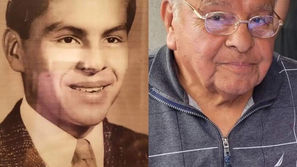Lamina Coal Mine: Don’t worry; it’s just a story
- Jim Glynn
- Aug 1, 2017
- 4 min read
Asu Coal Mine had been in decline for many years. Jobs were disappearing and the miners had little education to prepare them for work in a society that was gradually switching to energy that was supplied by perpetual resources like wind and sunshine. Something drastic had to be done.
During the previous year, the miners attended many meetings at which D. “Pop” Ulist, an old man who liked to pretend to drive big trucks but actually did no work, told them that only he had a solution to the many problems that they faced. Pop didn’t talk like any of the mining engineers or supervisors, claimed to have no background in either occupation, and promised that he would “make the mine great again.”
Pop referred to the “bosses” as “fibbers,” “lil’ emperors,” and “crooked pillories of torture for the workers.” With help from personnel at the Naissur Uranium Mine, the exploited employees at Asu accomplished a bloodless coup and selected Pop Ulist to manage their future. Along with a few close advisers, mostly family members, Pop drew up a list of guiding principles for the new enterprise, which he named Lamina Coal Mine.
Lamina guidelines
During his acceptance speech, which — it is claimed — was attended by every miner in the realm, he enumerated the guidelines for all Lamina workers. He told the miners that these tenets would be painted on a huge wall that would surround and protect the mine from outside influences. However, until the wall was built, the guidelines would be displayed on a flip chart in the break room.
Over the next few days, the miners filed through the break room and read the pages, each of which elaborated one rule, as follows:
The Asu benefit plan (aka, AmaboCare) will be repealed immediately and forever.
All supervisors shall be exiled and not replaced.
The protective wall shall be tall and thick.
No miners shall play golf.
TV and newspapers only report fake news.
Lies are truth.
All miners are equal.
As the miners emerged from the break room, each assured other workers that their lot in life would, indeed, improve. During the following week, some of the miners actually were called back to work, but most needed to apply for surplus food and for rent support. Pop hadn’t yet replaced the old system, and the people could not be left to starve or die from exposure to the elements. So, AmaboCare would continue while Pop’s family worked on a new plan. Flow Reztilb, an obvious critic of Pop’s, went to the break room to check the flip chart. He assumed that his memory had failed him when he read: “The Asu benefit plan (aka, AmaboCare) will be repealed immediately and forever, eventually.”
Community project
At the beginning of the third week, Pop gave another speech. As he addressed the miners, the old supervisors were packing up and leaving, but new people were moving into their now-empty homes. Most of the workers didn’t notice because they were distracted by Pop’s bad news concerning the wall. He said that, because the miners refused to fast, the wall would have to have openings in order for Lamina Mine to received groceries from the “outsiders.” The miners applauded because they were hungry and believed even more fervently that Pop would make the mine great again. They even helped to erect the first section of a scaled-down model of the wall.
Flow decided to revisit the break room and check out the flip chart. Page two looked familiar, yet different. It read: “All supervisors shall be exiled and not replaced, but consultants from Niassur Uranium Mine shall assist with operations.” Page three held the proclamation: “The protective wall shall be tall and thick and porous.”
Flow called a meeting to discuss the Lamina Mine Guidelines, but he was interrupted by Pop who said that he had an important challenge for the workers. After work hours, each miner would volunteer to spend at least three hours preparing 18 long, narrow lawns on which the members of Lamina Mines might be able to frolic during their vacations.
A newspaper that was passed through the first section of the wall claimed that the community project was actually a golf course. When this was reported to Pop, he led a contingent of miners to the break room and turned to the fifth page of the flip chart. It informed all those present that TV and newspapers only report fake news, just as Pop had declared during his acceptance speech. Everyone went away satisfied. But, Flow stepped back into the room to take a look at Page Four. It showed: “No miners shall play golf. Pop is not a miner.”
Rebellion
Flow began speaking to miners in small groups, telling them that the guiding principles had been corrupted by Pop and his Naissur advisers. He wanted the workers to rise up in rebellion and demand that the guidelines, as they now appeared, be revised in such a way that all of the residents of Lamina Mine would be eligible for schooling to learn the newer technologies that would qualify them for jobs in the outside world.
In one final rally, Pop joined Flow on stage and referred the audience to the sixth page of the guidelines. He said, “Yes, lies are truth. But, lies can be situational truth, and truth is always defined according to the situation in which it is told, unless it is a lie. Additionally, that depends on what the meaning of ‘is’ is. ‘Is’ can be ‘isn’t’ if ‘is’ is a fake lie. So, Flow is full of …”
Pop’s speech was drowned out by the emergency siren from Mine Seventeen. Pop picked up a plastic prop shovel and shouted, “I’ll follow you, workers. To the mine!” As the entire assembly ran toward the supposed disaster, Pop disappeared behind a tree and emerged driving a golf cart and heading toward the new “lawns.” Flow ran to the break room. He turned to the last page of the flip chart and read, “All miners are equal, but some are more equal than others.” Funny, he thought, that sounds oddly familiar.
Apologies to the late George Orwell. His “Animal Farm” was a satirical criticism of Stalinism in Russia.


























Comments